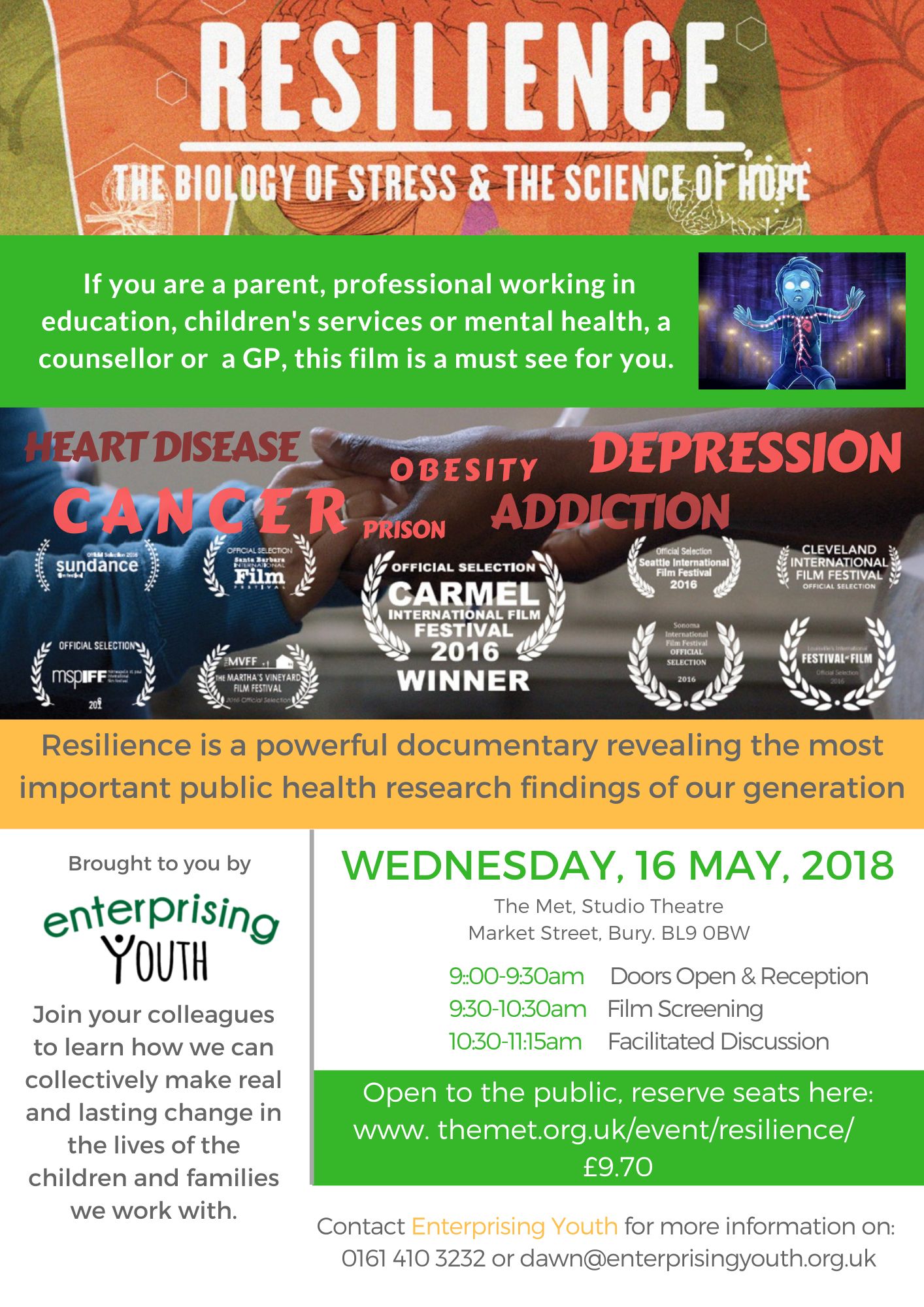ACEs Community Education
(Adverse Childhood Experiences)
We have been delivering community education training around ACEs since 2017 in Bury. We launched our first public training at The Met in 2017 and had over 120 public and professionals attend on that occasion. We also invited partner agencies to host a stand at the event to provide their complimentary information and offers.
We held the event annually until 2019 (then Covid stopped our work on this theme as gatherings of people weren’t permitted).
We are able to organise these events again. Please get in touch if this is of interest.
For more information please contact office@enterprisingyouth.org.uk
Our organisation is trauma-informed and we offer trauma-responsive intervention at our event.


This training offer is now available FREE of charge for residents of Bury via local voluntary organisations.
Pre-Covid we were funded by Bury VCFA to offer our training session to residents in Bury who wish to learn more about ACEs and the impact they can have.
We still have a small amount of this funding left to deliver our 2hr workshop to participants and volunteers of 3rd sector voluntary organisations in Bury. We remain committed to honouring this work as we believe helping residents and volunteer workers in Bury to understand ACEs / trauma and the impact it has, is vital to helping us all to work together to develop and progress positive outcomes for everyone in our families and communities.We will work with your organisation to deliver to your audience, personalising or targeting our support where necessary.
We offer on-site delivery, or we can organise venues and training for larger audiences.
Our service: we will measure the impact of the training and report outcomes, and if required we will also provide certificates of attendance to all participants.
This offer is currently FREE to local residents via voluntary organisations.
For more information please contact office@enterprisingyouth.org.uk
Our organisation is trauma-informed and we offer trauma-responsive intervention.


We have also been commissioned to deliver our ACEs Awareness training and workshops to other organisations, including colleges, The Derby High School and Beyond Psychology, to provide to audiences of professionals and foster parents. Some of these events we have been stand alone, in others we were delivering as part of a wider package of training and education.
We are able to organise these events again. Please get in touch if this is of interest.




Project Impact
Bury Residents & Professionals Trained in ACEs Awareness






How To Book Our Programmes
Contact our delivery team, we are looking forward to talking to you
We can adapt our work in a number of ways to different audience / durations, or deliver within schemes of work with partners as part of a wider scope of delivery around child development / trauma informed ways of working.office@enterprisingyouth.org.uk
0161 410 3232
All our work is trauma informed, complies with safeguarding best practice and follows NYA COVID-19 guidance for Youth Spaces.
